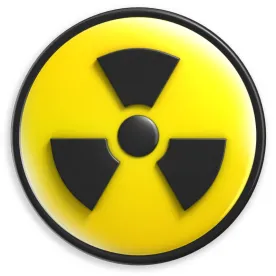It reads like a spy novel: a fictitious company rents a storefront and applies to the Nuclear Regulatory Commission (NRC or Commission) and state regulators for a license to acquire radioactive materials and succeeds in getting the license—but it isn’t fiction. The year was 2014, and the fictitious company was the US General Accounting Office (GAO) trying to determine the adequacy of the NRC’s security and accountability program for radioactive sealed sources. Since the issuance of the 2015 GAO report describing the vulnerabilities in the NRC’s radioactive source security (RSS) program, the NRC has been examining ways to improve it.
As part of its internal examination, the NRC recently released an informational paper (SECY-17-0025) announcing updates on its activities involving security and accountability for radioactive sources. On the heels of the 2015 GAO report, the NRC created two working groups to identify RSS program enhancements. A steering committee led by the NRC and state representatives reviewed these initial working groups’ recommendations and endorsed some for further evaluation.
The NRC staff is currently developing an action plan to implement the endorsed recommendations that do not require rulemaking, such as developing guidance and enhancing training to ensure that only approved entities obtain materials licenses. For the recommendations involving rulemaking, the staff plans to combine the rulemaking recommendations with other planned rulemaking activities affecting materials licensees, in order to maximize efficiency and minimize the cumulative effects of regulatory changes on materials licensees.
The NRC also formed a new working group to address the recent Commission directive (in SRM-COMJMB-16-0001) for the staff to reevaluate the protection and accountability of Category 3 radioactive sources. This working group—the Category 3 Source Security and Accountability Working Group—will present its recommendations to the steering committee for consideration in the coming months. The NRC staff will then provide these recommendations to the Commission in a notation vote paper in August 2017.
The staff intends to deliver the integrated rulemaking plan to the Commission in late 2017, approximately three months after the August notation vote paper. The rulemaking plan will include
-
the initial working group recommendations to amend 10 C.F.R. Parts 30, 40, and 70;
-
planned rulemaking activities pertaining to 10 C.F.R. Part 37; and
-
any rulemaking recommendations from the Category 3 Source Security and Accountability Working Group.
In addition to the above, the staff plans to incorporate the rulemaking activity to amend 10 C.F.R. Part 30 to require financial assurance for the disposition of Category 1 and 2 RSS into the integrated rulemaking effort beginning at the regulatory basis phase of the rulemaking. But the decision to include these financial assurance amendments in the integrated plan will be subject to the Commission’s direction after the August 2017 notation vote paper.




 />i
/>i
